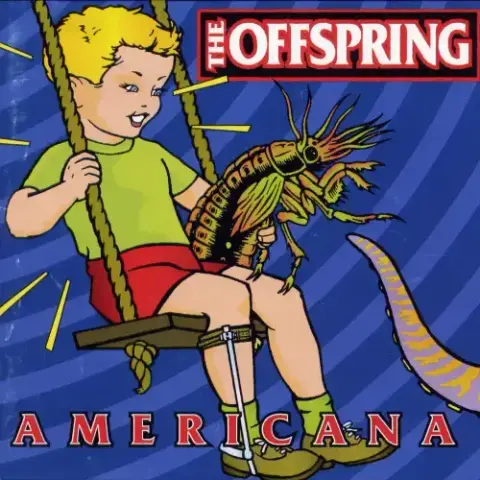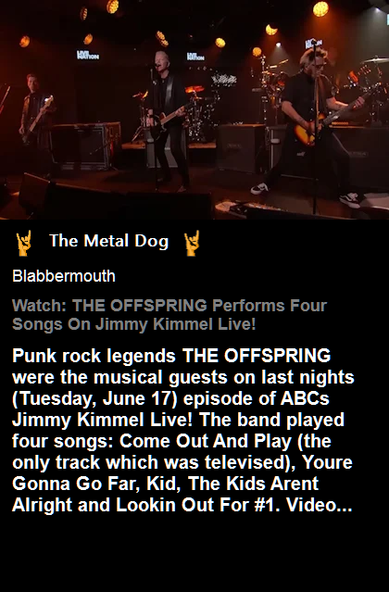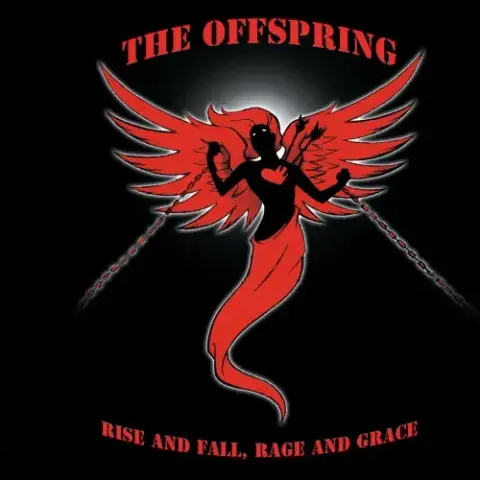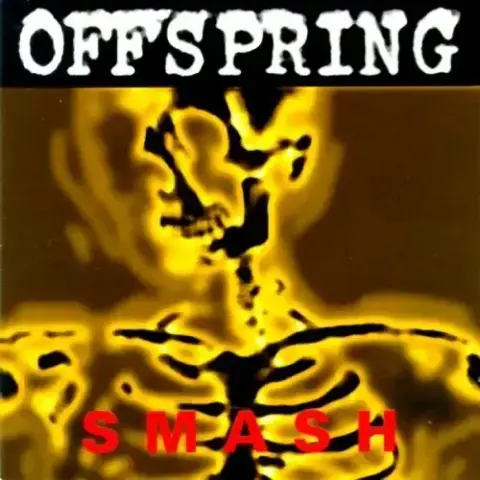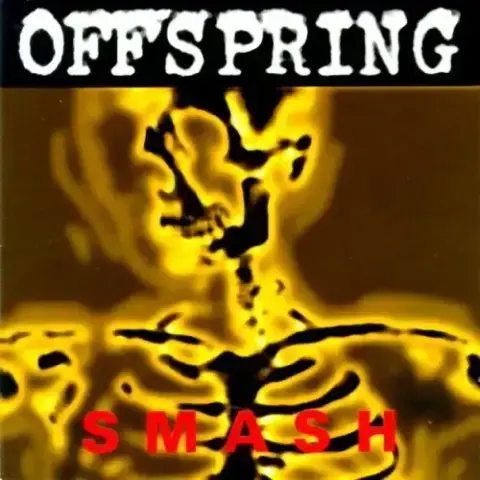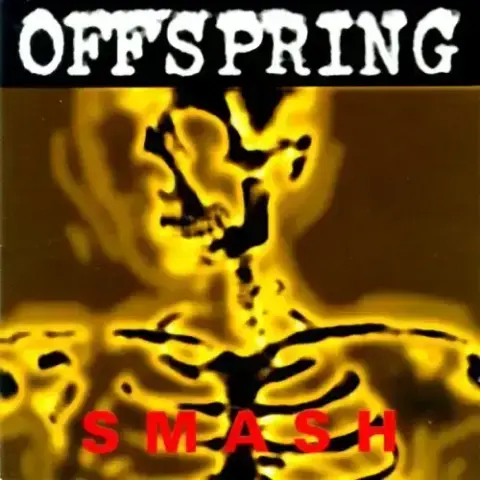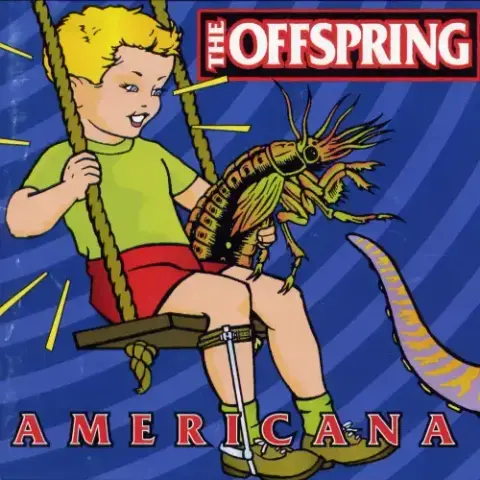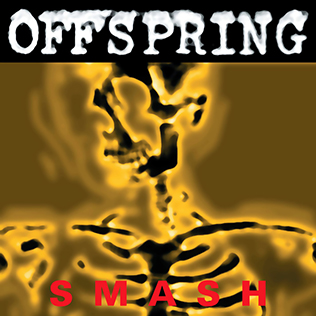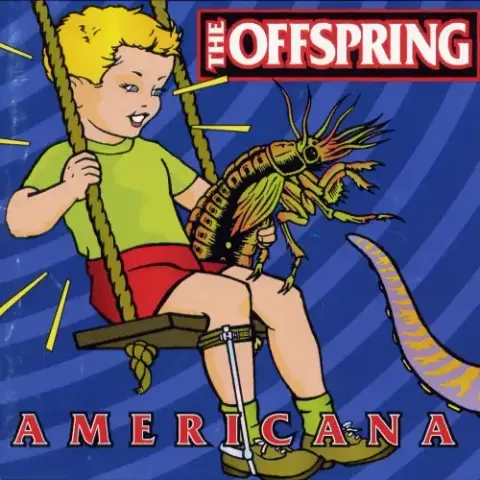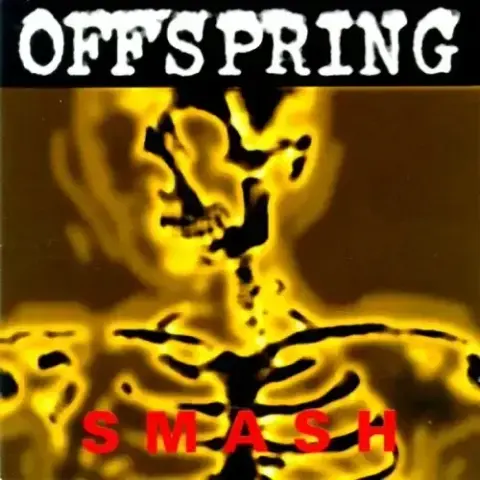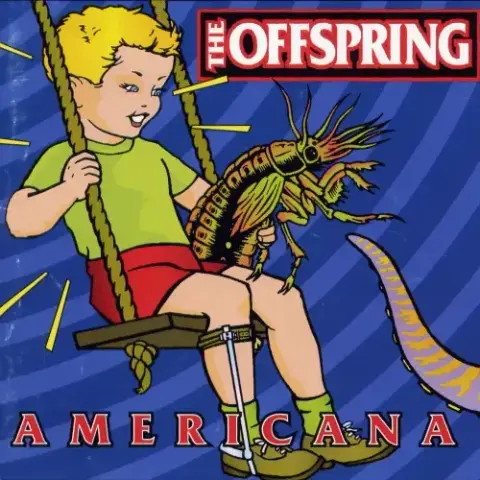The Offspring Play “Self-Esteem”
Listen to this track by Californian pop-punk proponents The Offspring. It’s “Self-Esteem”, a smash single from their landmark 1994 album appropriately titled Smash. The band emerged out of the fertile West Coast punk scenes in the early 1980s, recording their first record by the end of that decade with promising if initially modest results. It would be in the 1990s that they would find their place in the punk-pop pantheon after Nirvana helped to clear the track for guitar-based bands with an aggressive edge being accepted (and promoted!) in the mainstream.
Along with contemporaries Green Day, Blink 182, Bad Religion, Rancid, and others, The Offspring were part of a wave of punk rock bands with pop hooks that became part of the new paradigm. Beyond the significance of punk rock heard on mainstream radio, this cultural shift is reflected in their subject matter and approach to songwriting. For instance on this very song, the misogyny of Eighties hair metal was pushed aside in favour of male vulnerability and expressiveness, even in music that sounded just as amped up as anything that came before it.
As a tune that springs from even older, well-established lyrical traditions as found in Smokey Robinson’s “You Really Got a Hold on Me” and Bill Withers’ “Use Me”, “Self-Esteem” draws just as much from the contemporary pop psychology of the day that made its way into the collective vocabulary, and therefore into the songs heard on the radio. Salacious daytime talk shows that were so popular from the late 1980s and into the Nineties traded in much of the same language, narrative sense, and a sometimes tenuous grasp of dysfunctional relationship dynamics as heard in this song.
In the same fashion as Jerry Springer, Morton Downey, jr., or Geraldo Rivera on their very popular television shows of the era, “Self-Esteem” seem to actively provoke the listener to either jeer or sympathize with the hangdog narrator trapped in a relationship he can’t, or refuses to, get himself out of. We are in the audience for this tune in more than one sense, with the narrator telling us his story as if he’s being interviewed daytime talk show style. He even speaks to us directly, with a thinly-veiled attempt to get us to validate his very questionable philosophy about what suffering means in a relationship:
Well I guess I should stick up for myself
But I really think it’s better this way
The more you suffer
The more it shows you really care, right? Yeah.
~ “Self-Esteem”, The Offspring
BOO! Bullshit, man! Leave her ass! Have some self-respect!
These active elements were commonly understood by audiences well outside of psychology textbooks. In the forums of popular television shows of that era, human relationships and perspectives became the fodder for pure spectacle. As audiences looked on with equal parts glee, disgust, and moral superiority, the seeds of the reality TV of the early Twenty-First Century and into our current era, from Big Brother to The Kardashians and beyond, found their purchase in very fertile soil, for good or ill.
The Offspring on stage in 2022; from left: bassist Todd Morse, and guitarist and singer Dexter Holland. image: Fred Gasch (Mr. Rossi)In the meantime, these same themes around relationship dysfunction gave The Offspring’s guitarist and singer Dexter Holland quite a bit of grist for his songwriting mill. One of the many things that punk rock does very well is exaggerate and lampoon cultural touchstones to very entertaining effect. On “Self-Esteem”, this is coupled with the band’s command of pure aggression in their playing, particularly true with the trebly, rattling bassline that pulls and pushes the whole thing along. The hooky melody against the bludgeoning guitar and drums are more than effective in communicating the tormented and churning inner conflict we hear in the song’s lyrics.
And what of the story this song tells? Are we on the narrator’s side here, or do we simply condemn him as a weakling? Do we identify with his situation, or deride him for staying in it? And how do we feel about the woman in the story, the person we don’t hear from directly? Where this tune appears to make a villain out of the heartless woman being sung about – neglecting her hapless lover, staying out late with god-knows-who, and even sleeping with the poor guy’s friends – the real villain of this song may actually be more accurately identified as the very impulses that narratives like this set off in us in the audience – the ones that ask us to make hard-coded judgements about people we’ve never met and with only scant information about them by which to do so.
By 1994, we were saturated by these kinds of judgmental framing devices constructed for us by countless daytime TV shows. They became a part of a pervasive apparatus that reduced our understanding of human relationships to simplistic good guy vs. bad guy morality and presented in one-dimensional, easily digestible narratives to attract the highest ratings possible. In that context, “Self-Esteem” is classic example of punk-rock subversion, packed with layers of Gen-X-brand irony. Of course, an additional shot of irony might be that this song’s significant success was arguably due in part to how well it invited listeners to project onto it just as they might when consuming a similar story on a daytime television program or radio talk show. We were well-conditioned for this kind of thing by then and perhaps even more so today.
Despite all that though, this tune wears a knowing smirk on its face. After all, how could any intelligent person take any of that simplistic media-driven morality and judgement seriously, especially when one considers how complex relationships and their motivating factors actually are in real life?
How, indeed?
The Offspring would continue to enjoy mainstream hits for the rest of the Nineties and into the Twenty-First Century, too. Many of those songs continued to explore the absurdities of late-Twentieth Century culture, some using pop psychology language that was so well understood by audiences, including “She’s Got Issues”. They’d have a hit in their 1998 song “Pretty Fly (For a White Guy)”, which took on an observable social phenomenon by lampooning it rather than criticizing it directly in any serious capacity.
Somewhere in there, Dexter Holland accomplished something that went beyond pop charts and stadium shows. He earned his Ph.D. in molecular biology, a pursuit that ran in parallel with his music career for many years.
The Offspring are an active band today. You can catch up to them at theoffspring.com
Enjoy!
#90sMusic #popCulture #popPunk #PunkRock #televisionHistory #TheOffspring

